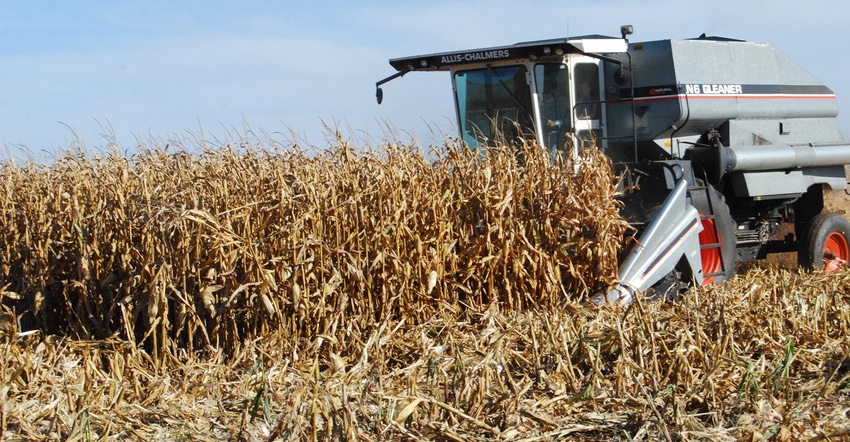November 27, 2018

We’ve received several post-harvest questions from readers this month.
One of our landlords died unexpectedly. We have three years left on a contract to farm 600 acres. The landlords’ son and daughter indicate they want to sell the land soon. We aren’t in a position to buy it. Can we force them to honor the three-year rental contract, or did it end when he died?
Iowa law requires that the new owners of the farmland whether an estate, trust or the landlords’ son and daughter step into the shoes of the landlord after his or her passing. They assume the terms of the lease unless everyone agrees to a different arrangement. If the farm is sold, it would be sold subject to the lease. So, in this situation, the tenant could enforce the terms of the three-year rental contract in a court of law.
In the inverse, if a tenant dies during the term of the lease, generally, the lease terminates because a farm lease requires the personal services of the tenant. If the tenant can’t perform, then the purpose of the lease cannot be accomplished. Of course, every situation is different. If the tenant is an entity, or husband and wife, the answer may differ.
After consulting with my banker and tax preparer after harvest, I am concerned that the cash rent I agreed to pay one of my landlords is too high, given the state of the grain market. I did not terminate our lease prior to Sept. 1. Now I’m concerned my banker won’t lend me the money to pay the landlord in the spring. What do I do?
The simple answer: It’s never too late to renegotiate if both parties are willing. After another year of low crop prices and low livestock process, unfortunately, USDA is forecasting low farm income for fifth year in a row. Since Iowa law states that a farm lease begins on March 1, the deadline to finalize cropland leases is March 1, 2019. However, now is the time to have those discussions and finalize the arrangement for the next crop year to provide some certainty.
It is quite common for landlords and tenants to renegotiate after Sept. 1, even if the farm tenant wasn’t terminated. Landlords and tenants may want to revisit the structure of the lease. The most common form of farm lease is still a fixed cash rent lease. But the flexible cash lease is growing in popularity.
A crop-share lease is also an option. Some tenants have successfully renegotiated lower cash-rental rates by using different forms of leases, including the flex-lease, which spreads the risk between landlord and tenant. Others have gone to a straight crop-share lease. Typically, these leases are used by both parties to level out the playing field or spread the risk between both parties.
My tenant hasn’t paid the last half of the cash rent due Nov. 15 and doesn’t return my phone calls or written requests for payment. What are my options? I did not file a landlord’s lien.
As always, if part or all of the farm rent payment is due in the fall, strongly consider filing a landlord’s lien to ensure payment or priority to the proceeds of the crop by filing a financing statement with the Iowa secretary of state (UCC-1) (sos.state.ia.us). The lien should be filed within 20 days of the date the debtor takes possession of the leased premises.
Without the filing of a landlord’s lien, under Iowa law, a landlord has a right to receive rent promised by the tenant. If the tenant pays late or fails to pay at all, the landlord may have grounds for terminating the lease. However, the tenant must be given an opportunity to fix or cure the problem. In other words, the landlord should give notice of nonpayment to the tenant and an opportunity to correct the situation. If the tenant fails to pay after notice is given, consult an attorney and consider your legal options.
My farm tenant recently chopped and baled the cornstalks from our farm and hauled them away to use in his livestock operation. We never discussed this issue, and the lease is silent on who gets the stalks. I’m concerned with my overall conservation plan. Who has the right to the stalks?
If the lease is silent, Iowa law states that the person in possession of farmland (the tenant in this case) is entitled to the aboveground residue of the plant. If a landlord wants a different arrangement, they need to specify in writing. In 2010, the Iowa Legislature passed Iowa Code §562.5A relating to crop residue. The law states that a farm tenant may take “any part of the aboveground part of the plant associated with a crop, at the time of harvest or after the harvest” until the lease is terminated.
All these issues come up frequently in my practice, and the best advice I can give in this time of increased complexity in leasing and variability in rental rates is that it is never a bad idea to seek legal counsel or the counsel of an expert in farm leasing when renegotiating or dealing with a difficult situation.
Next month: As has been widely publicized, there is a shortage of labor to help Iowa’s hog, cattle and poultry industries function. Many farm businesses hire immigrant workers to help get the work done. In the wake of recent events, it is highly likely that the Legislature will discuss the undocumented worker issue and the issue of the rural Iowa workforce. We will explain what farmers need to do to make sure they hire workers legally. We will also discuss topics on the forefront for agriculture in the upcoming Iowa legislative session.
Herbold-Swalwell is an attorney with Brick-Gentry in Des Moines. Contact [email protected].
About the Author(s)
You May Also Like






